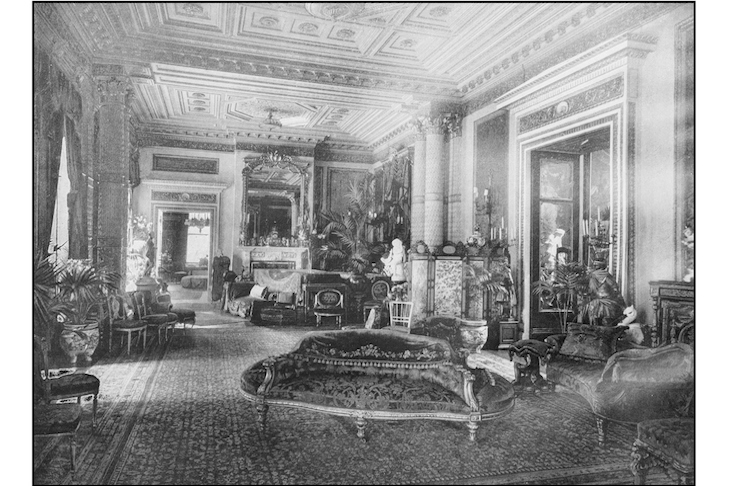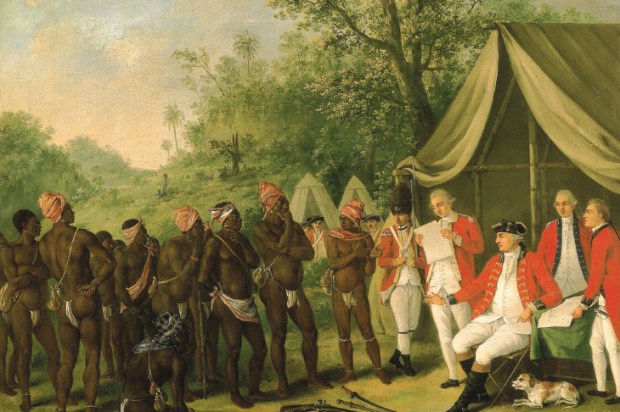This is a monumental but inevitably selective survey of all that occurred in Britain, for better or worse, in the late 19th and early 20th centuries. It is certainly a useful summary, with much illuminating detail to carry the story forward: describing the opulence that was so much in evidence, Simon Heffer mentions the diamond which adorned Lord Randolph Churchill’s cigarette holder.
He kicks off with Queen Victoria’s Jubilee of 1877, and Disraeli’s proclamation of her as Empress of India. At home, swagger and squalor went side by side, and living conditions, both rural and urban, were often appalling. The population increased from 35 million in 1881 to over 40 million by 1906. Water supplies and sanitation were often lacking, causing frequent outbreaks of cholera and typhus, tuberculosis and dysentery in overcrowded and unhygienic locations.
By the time of her Diamond Jubilee the Queen was asked by one of her grandchildren if the endless dazzling parade of her imperial troops made her feel proud; she replied: ‘No, it makes me feel very humble.’ But she often had a funny way of showing it, and would tick off her ministers angrily when she disagreed with their policies. In politics it was the age of three supreme leaders: Gladstone, who she disliked on the grounds of stiffness and pomposity; Disraeli, who knew exactly how to flatter her; and Salisbury, who having overseen the addition of vast territories to her empire, declared with deep disapproval that ‘All empire is necessarily a love of war’. By comparison with them, nearly all prime ministers in the last 50 years look like pygmies.
By far the worst problem of the age was Britain’s relations with Ireland, and the 65-page chapter on them here is admirable, though depressing. Ulster failed to recognise that if Home Rule had prevailed, Belfast, with its factories and excellent harbour, could have run rings round Dublin as the industrial and commercial centre of Ireland, to the benefit of the whole country, sharp religious differences notwithstanding. Who knows? As it turned out, only the outbreak of the European war in 1914 prevented civil war in Ireland, the prospect of which had been of far more concern to Asquith’s government than events in faraway Sarajevo.
In England, although electric light, telephones, motor cars and underground railways were introduced, the country was resting on its economic laurels after the huge impact of the Industrial Revolution, and the severe problems of the workforce needed to man it. Our industrial performance was lagging behind that of Germany and the United States. Free trade and cheap food had wrought havoc in British agriculture, and the owning of land, previously of prime significance, had become far less profitable.
I never knew that in the Boer War there were truces to prevent fighting on Sundays; but the earnest Boers were deeply shocked that British soldiers played cricket instead of going to church. Heffer is equally good on the suffragettes and provides details of their brutal treatment. But considering the wealth of more significant detail available, do we really need ten pages on the shallow and selfish views and habits of H.G. Wells, and another eight on the tedious scandal of Lord Arthur Somerset?
More interesting is the brilliant early life of Beatrice Webb, and her subsequent sad decline. There are also less widely known and fascinating details about cricket, which at the time was far more popular than football. In 1904, in the course of three days, 78,972 people attended the benefit match of the Yorkshire hero G. Hirst (and consumed 135,000 bananas). It was the age of C.B. Fry and Ranjitsinhji, who played for Sussex, and also for England because India did not yet have a national team. Another hero was A.E.Trott, the only batsman recorded to have hit a six over the pavilion at Lord’s.
We then come to the great social reforms of Asquith’s government, already set on course by the underrated Campbell-Bannerman, who however sadly died (chiefly, it is said, from over-eating) before they were implemented. Old-age pensions and National Insurance were strongly opposed by the Tories, and battle was joined with the House of Lords over Lloyd George’s budget of 1909, when a large increase in taxation was needed to pay for these measures and also for the new Dreadnoughts to match the Germans’ great naval expansion programme.
The whole drama is well described here, but no new details are added to the many previous accounts. Heffer takes his book’s title from that of a lecture by A.J. Balfour — a man far better equipped for philosophy than for the role of prime minister, and who never bothered to read the newspapers — but is not wholly appropriate. And since few people will read this book from cover to cover, it would have been helpful to have published it in two volumes instead of the present monster, which weighs in at over three and a half pounds.
Got something to add? Join the discussion and comment below.
Get 10 issues for just $10
Subscribe to The Spectator Australia today for the next 10 magazine issues, plus full online access, for just $10.
You might disagree with half of it, but you’ll enjoy reading all of it. Try your first month for free, then just $2 a week for the remainder of your first year.














Comments
Don't miss out
Join the conversation with other Spectator Australia readers. Subscribe to leave a comment.
SUBSCRIBEAlready a subscriber? Log in